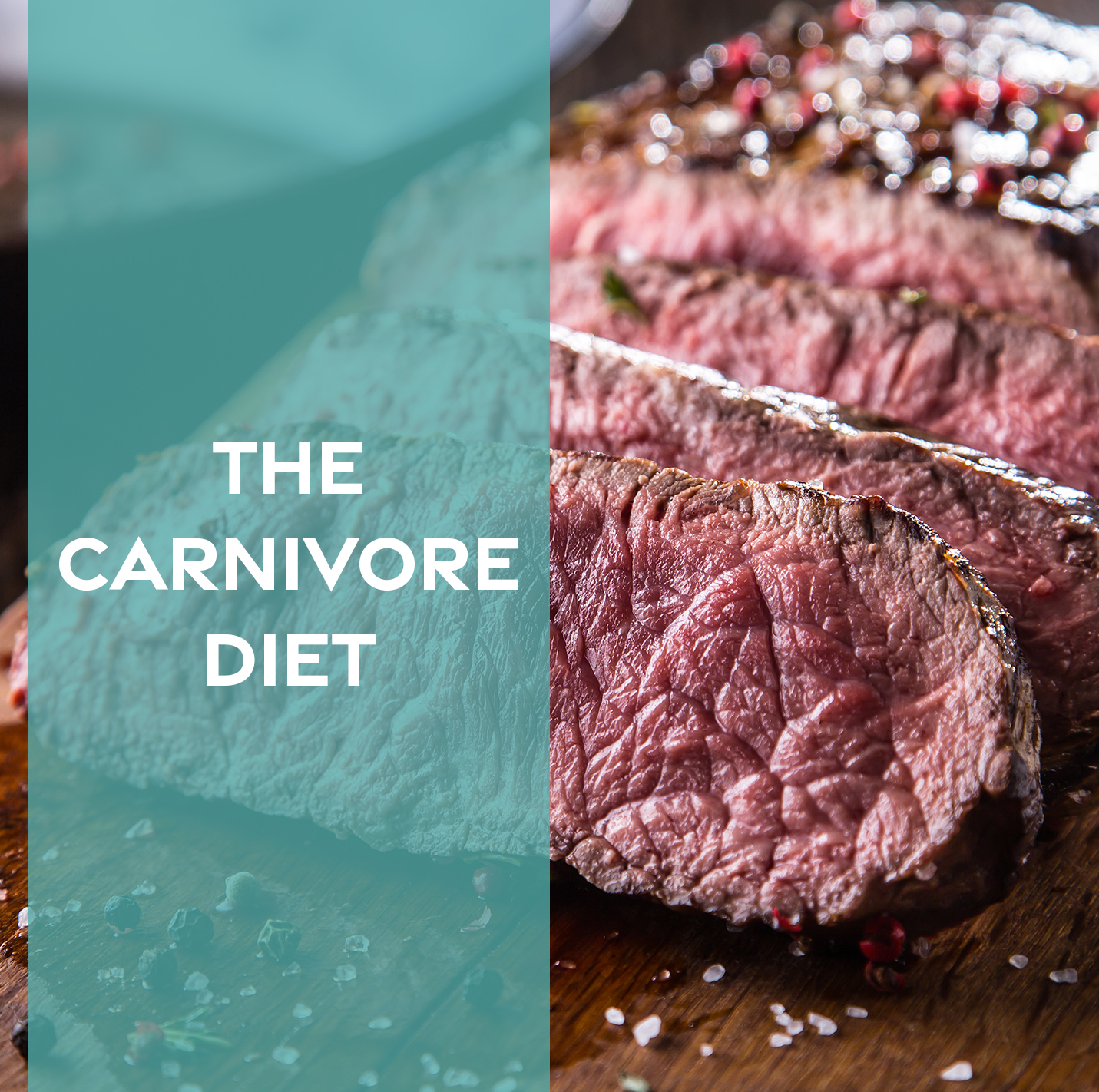In recent years, the carnivore diet has gained traction among health enthusiasts and social media influencers. It is promoted as a simple yet effective way to lose weight, gain muscle, and improve overall health. The diet consists of consuming only animal-based foods—meat, fish, eggs, and limited dairy—while eliminating plant-based foods. While this diet might seem enticing to some, it also raises important questions about its long-term health implications. In this blog post, we are diving into the origins of the carnivore diet, the rise in popularity via social media, and the health risks associated with this diet.
What Is the Carnivore Diet?
While it feels like a modern trend, its roots go back to early human history. At its core, the carnivore diet is a zero-carb, high-protein, and high-fat eating plan. Proponents of the diet argue that humans evolved as primarily carnivorous creatures and thrive on animal-based foods. Therefore by returning to a meat-centric diet, people can experience better health outcomes. This idea taps into the “Paleo diet” as followers typically eat beef, pork, chicken, fish, and eggs, but take it even further by eliminating vegetables, fruits, grains, legumes, and even most dairy products.
The diet promises benefits like weight loss, reduced inflammation, increased energy, and mental clarity. Advocates claim that removing plant-based foods eliminates anti-nutrients (compounds found in some plants that may inhibit nutrient absorption) and toxins that could contribute to health issues.
Why Is This Even a Thing?
The idea of simply eating meat and avoiding all other food groups can be appealing because it’s straightforward and easy to follow, especially for those who have struggled with traditional diets. Now add in the instant gratification from people on social media boasting about their results and encouraging others to jump on the bandwagon, it is very enticing to viewers.
There is an incredible downside to this trend and that is the lack of professional guidance and scientific research. Rarely if at all, are they boasting about the health risks associated with following this diet plan. Social media provides an overly simplified view of the diet and its effects, potentially leading people to make decisions that could harm their health in the long run.
Health Benefits: Fact or Fiction?
While some individuals report experiencing positive changes from adopting the carnivore diet, including weight loss and improved mental focus, it’s important to consider the limited scientific evidence supporting these claims. Much of the anecdotal success comes from social media accounts or personal blogs, rather than rigorous clinical studies.
That said, some research suggests that a high-protein, low-carbohydrate diet may help with weight management and improve certain biomarkers in the short term. It’s worth noting that these studies often involve a more balanced approach, also including a variety of plant-based foods, and not a strict carnivore approach.
Potential Health Risks
While the carnivore diet may provide short-term benefits for some, here are a few of the concerns about its long-term health effects and risks to consider
- Nutrient Deficiencies: One of the most significant concerns with the carnivore diet is the potential for nutrient deficiencies. A diet that excludes fruits, vegetables, and whole grains eliminates a variety of essential vitamins, minerals, and fiber. Lack of fiber can lead to digestive issues, like constipation. At the same time, a deficiency in vitamins such as C, K, and various B vitamins could cause long-term health problems like scurvy or compromised immune function.
- Increased Risk of Heart Disease: The carnivore diet is high in saturated fats, which have been linked to increased cholesterol levels and an elevated risk of heart disease. While some proponents argue that the quality of fat matters, with grass-fed beef or wild-caught fish offering healthier fat options, the evidence on the long-term effects of a diet that is so rich in animal fats is still unclear.
- Kidney Strain: Excessive protein intake can put additional stress on the kidneys, particularly for individuals with pre-existing kidney conditions. The nature of this diet is high-protein and in excess could exacerbate kidney function decline and increase the risk of kidney stones.
- Gut Health: The lack of fiber and plant-based foods may negatively affect the gut microbiome. Research has shown that a diverse and balanced gut microbiome—fueled by a range of dietary fibers from fruits, vegetables, and whole grains—supports immune health, mental well-being, and digestion. Without these foods, there is a risk of imbalanced gut bacteria and compromised gut health.
- Increased Risk of Cancer: Some studies suggest that diets high in red and processed meats may increase the risk of certain cancers. Also, many plant-based foods like fruits and vegetables contain antioxidant compounds that help protect against cancer. Therefore, with this diet, the body has less defense against oxidative stress and inflammation.
- Mental impact: Carbohydrates are the body’s main source of energy and brain’s preferred source of fuel. Removing the whole food group from your diet can negatively impact one’s mood and emotional well-being. Without enough carbohydrates in the diet, individuals can experience increased fatigue, irritability, anxiety, and depression.
Conclusion: Balance is Key
The carnivore diet is tempting for those looking for quick and immediate results but its long-term health impacts are still up for debate and the risks outweigh the potential benefits. Social media amplifies the diet’s appeal as influencers, fitness enthusiasts, and online communities boast about the short-term results they found following this diet. However, the diet’s restrictive nature and potential health risks—such as nutrient deficiencies, heart disease, and kidney strain—are a cause for concern.
You should always be cautious about trusting social media influencers who promote their diets, as their content often presents an unrealistic or incomplete picture. Many influencers share only the highlights, selectively showcasing their successes or transformations, while leaving out the difficulties, sacrifices, or negative effects accompanying these diet plans. Furthermore, social media platforms often promote content that is extreme or sensational, reinforcing diet culture and the idea that you need to change your body to be worthy or healthy. Ultimately, what works for one person may not work for another, and blindly following influencers can perpetuate dangerous, unrealistic expectations. Questioning these messages and focusing on sustainable, balanced approaches to well-being and long-term health is essential.
It is important to remember that any diet that promotes extreme eating habits, cuts out entire food groups, and endorses an unhealthy relationship with food, is not true wellness and is simply diet culture making you think you need to make radical changes to be happy and healthy. Health is not about subscribing to the latest trend or drastically cutting out entire food groups. Rather than embracing extreme diets, we recommend a balanced, nutrient-dense eating plan that includes a variety of whole foods, both plant-based and animal-based.
As with any trend, it’s crucial to approach the carnivore diet with caution, remember that nutrition is not one-size-fits-all, and understand that what works for one person might not be suitable for another. We recommend seeking professional advice to ensure your nutrition plan is balanced and sustainable for your individual needs and long-term health.

